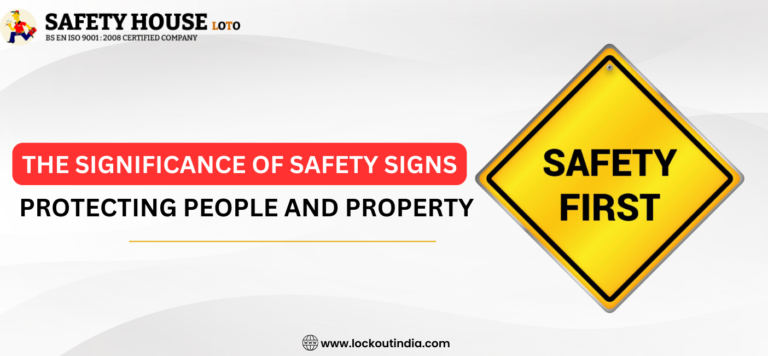In a world where safety is paramount, the role of safety signs cannot be overstated. These visual cues, often underestimated, are vital tools in safeguarding both people and property. Whether you’re navigating a construction site, working in a chemical plant, or simply walking down the hallway of a building, safety signs are an essential component of our daily lives. In this comprehensive article, we will delve into the significance of safety signs, their various types and applications, and how they contribute to a safer environment. We will also explore the role of a lockout supplier and lockout tags in enhancing safety protocols.
Understanding the Importance of Safety Signs
- Communication of Hazards: Safety signs are the unsung heroes of hazard communication. They provide crucial information about potential dangers in a specific area. These hazards can range from slippery floors to high-voltage electrical equipment. By alerting individuals to these risks, safety signs help prevent accidents and injuries.
- Guidance and Instructions: Safety signs don’t just warn; they also guide. Think of the signs that direct you to emergency exits or indicate the location of fire extinguishers. In emergency situations, these signs can be lifesavers, ensuring a swift and orderly evacuation.
- Legal Compliance: In many countries, there are strict regulations regarding safety signage. Failing to display the appropriate signs can result in legal consequences for businesses. Compliance with these regulations not only keeps you on the right side of the law but also underscores your commitment to safety.
Types of Safety Signs
1. Prohibition Signs
2. Warning Signs
3. Mandatory Signs
4. Emergency Signs
5. Safety Equipment Signs
6. Construction Signs
The Role of Lockout Supplier and Lockout Tags
- Quality Lockout Devices: A reputable lockout supplier offers high-quality lockout devices that are essential for isolating energy sources and ensuring the safety of maintenance personnel. These devices are designed to withstand harsh industrial conditions and prevent accidental equipment start-ups.
- Customization Options: Different facilities have unique lockout requirements. A trusted lockout supplier provides customization options, allowing businesses to tailor their lockout solutions to specific equipment and procedures. This ensures that the lockout process is efficient and effective.
- Comprehensive Lockout Kits: Lockout suppliers often offer comprehensive lockout kits that include a variety of devices, including lockout tags. These kits simplify the implementation of LOTO procedures by providing all the necessary tools in one package.
- Lockout Tags and Labels: Lockout tags are a crucial part of the LOTO process. They provide information about the maintenance or repair work being conducted, as well as the responsible personnel. Lockout tags help prevent accidental re-energization of equipment and ensure the safety of workers.

No comments:
Post a Comment